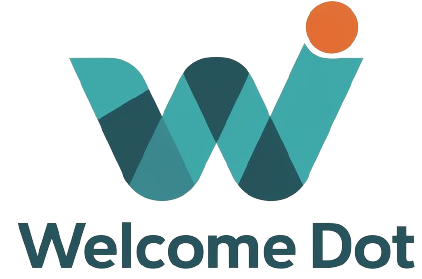
People Most Likely Need to Take Out a Mortgage When They Have…
Purchasing a home is a significant milestone in one’s life, and for most people, it requires taking out a mortgage to finance the purchase. While the need for a mortgage can arise at various stages of life, there are certain times when individuals are more likely to seek out this type of loan. From first-time homebuyers to growing families and retirees looking to downsize, understanding the common scenarios that prompt people to take out a mortgage can help you better prepare for your own homeownership journey.
Stages of Life When People Typically Need a Mortgage
First-Time Homebuyers
For many individuals, the first time they consider taking out a mortgage is when they are ready to purchase their first home. First-time homebuyers often seek out starter homes that fit their current needs and budget, with the intention of building equity over time. These buyers may have spent several years saving for a down payment and improving their credit scores to qualify for a mortgage.
First-time homebuyers may also take advantage of special programs designed to assist them, such as FHA loans, which offer lower down payment requirements and more lenient credit score thresholds compared to conventional loans. These programs can make homeownership more accessible to those who are just starting out in their careers or have limited savings.
Growing Families Needing More Space
As families expand, many homeowners find themselves in need of a larger living space to accommodate their growing needs. This often prompts them to seek out a new mortgage to finance the purchase of a bigger home. Upgrading to a larger home allows families to have additional bedrooms, bathrooms, and living areas to comfortably fit their lifestyle.
When expanding families look for a new home, they may also consider factors such as school districts, proximity to work, and community amenities that cater to their children’s needs. These homebuyers may have built up equity in their current home, which can be used as a down payment for their new, larger home.
Empty Nesters and Retirees Downsizing
On the other end of the spectrum, empty nesters and retirees often find themselves in a position where they no longer need the large family home they once occupied. As children move out and retirement approaches, many older homeowners choose to downsize to a smaller, more manageable home. This transition may involve taking out a new mortgage to finance the purchase of a smaller property.
Downsizing can offer several benefits for retirees, such as reduced maintenance responsibilities, lower utility costs, and the potential to free up equity from the sale of their larger home. Some retirees may also choose to relocate to a more desirable location, such as a warmer climate or a community that caters to their specific needs and interests.
Financial Requirements to Qualify for a Mortgage
Credit Score Needed for a Mortgage
One of the most critical factors in qualifying for a mortgage is having a good credit score. Lenders use credit scores to assess a borrower’s creditworthiness and determine the likelihood of them repaying the loan. A higher credit score generally translates to better loan terms, such as lower interest rates and more favorable repayment options.
The minimum credit score required for a mortgage varies depending on the type of loan and the lender. However, a general rule of thumb is that a credit score of 620 or higher is typically needed to qualify for most conventional loans. Borrowers with credit scores below this threshold may still have options, such as FHA loans, which have more lenient credit requirements.
| Loan Type | Minimum Credit Score |
|---|---|
| Conventional | 620 |
| FHA | 580 (with 3.5% down) or 500 (with 10% down) |
| VA | No minimum, but lenders typically prefer 620+ |
| USDA | 640 |
Down Payment Requirements by Loan Type
Another important factor in securing a mortgage is the down payment. The down payment is the upfront portion of the home’s purchase price that the buyer pays out of pocket, while the mortgage covers the remaining balance. Down payment requirements vary depending on the type of loan and the lender, but here are some general guidelines:
- Conventional loans: Typically require a minimum 3-20% down payment, depending on the lender and the borrower’s qualifications.
- FHA loans: Require a minimum 3.5% down payment for borrowers with a credit score of 580 or higher, or 10% for those with scores between 500-579.
- VA loans: Often allow for no down payment for eligible veterans, active-duty military members, and their surviving spouses.
- USDA loans: May offer no down payment options for eligible borrowers in designated rural areas.
Acceptable Debt-to-Income Ratios
Lenders also consider a borrower’s debt-to-income (DTI) ratio when evaluating their mortgage application. The DTI ratio compares a borrower’s monthly debt obligations to their gross monthly income. A lower DTI ratio indicates that the borrower has a manageable level of debt relative to their income, which makes them a more attractive candidate for a mortgage.
Most lenders prefer a DTI ratio of 36% or less, meaning that the borrower’s total monthly debt payments (including the new mortgage) should not exceed 36% of their gross monthly income. However, some lenders may accept higher DTI ratios, particularly if the borrower has a strong credit score, a substantial down payment, or significant cash reserves.
People Commonly Needing Mortgages
Individuals and Families Buying Primary Residences
The most common group of people who need mortgages are individuals and families purchasing a primary residence. These owner-occupied properties are where the borrowers intend to live for the majority of the year. Primary residences can include various property types, such as single-family homes, condos, or townhouses.
When buying a primary residence, borrowers often have access to the most favorable mortgage terms, as lenders view these properties as less risky compared to investment properties or second homes. Additionally, certain loan programs, such as FHA and VA loans, are specifically designed to help individuals and families purchase primary residences.
Real Estate Investors Financing Rental Properties
Another group of people who frequently need mortgages are real estate investors who purchase properties to generate rental income. These investment properties can provide a steady cash flow and the potential for long-term appreciation, making them an attractive option for investors looking to diversify their portfolios.
When financing rental properties, investors may face stricter lending requirements compared to those buying primary residences. Lenders often require a larger down payment, typically 20-30%, and may charge higher interest rates to compensate for the increased risk associated with investment properties. Investors should also be prepared to demonstrate their ability to manage the property and cover the associated expenses, such as maintenance, repairs, and property management fees.
Current Homeowners Refinancing Their Mortgages
In addition to those purchasing homes, current homeowners who want to refinance their existing mortgages also need to qualify for a new loan. Refinancing involves replacing an existing mortgage with a new one, often with the goal of securing better loan terms, such as a lower interest rate or a more manageable monthly payment.
Homeowners may choose to refinance for various reasons, such as:
- Lowering their monthly mortgage payment by securing a lower interest rate
- Converting an adjustable-rate mortgage (ARM) to a fixed-rate mortgage for more predictable payments
- Accessing their home’s equity through a cash-out refinance to fund home improvements, consolidate debt, or invest in other opportunities
- Shortening their loan term to pay off the mortgage faster and save on interest charges
When refinancing, homeowners must still meet the lender’s qualification requirements, which typically include a good credit score, a stable income, and a satisfactory debt-to-income ratio. The property’s value and the borrower’s equity in the home will also play a role in determining their eligibility for refinancing.
See also:
- How Much is the Mortgage on a Habitat for Humanity House?
- What Happens to My Reverse Mortgage if I Go Into a Nursing Home
- What Is A Blanket Mortgage: Meaning, Overview, and Advantages
- How Much Does a Mortgage Broker Make? Salary Insights
- How Many People Can Be on a Mortgage? Complete Guide
